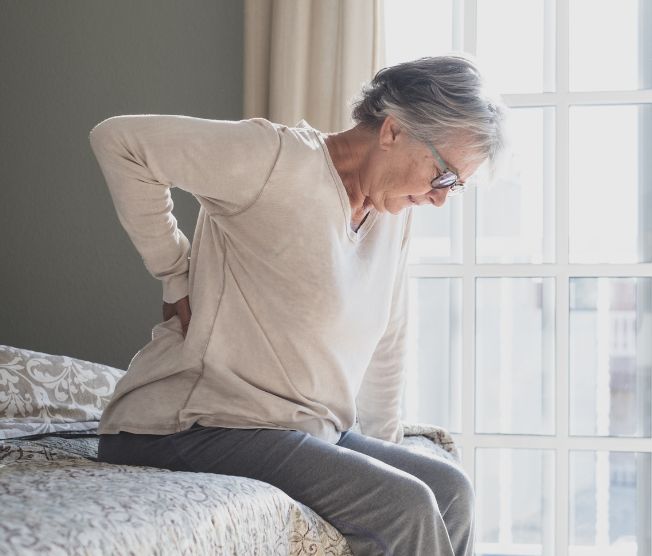On World Osteoporosis Day (October 20), Familiar Roads joins global efforts to raise awareness about bone health and the importance of prevention. We believe that strong bones begin with strong knowledge—and simple daily actions can make a powerful difference.
Osteoporosis is often called the “silent disease” because bone loss happens gradually and without symptoms—until a fracture occurs. According to the International Osteoporosis Foundation, 1 in 2 women and 1 in 4 men over the age of 50 will experience a fracture related to osteoporosis. These injuries can severely affect independence, mobility, and overall quality of life.
Age 65 and above – Bone density naturally decreases with age.
Understanding your risk is the first step toward prevention. Some of the most common factors that increase the likelihood of osteoporosis include:

At Familiar Roads, our caregivers follow structured Bone Health Protocols designed to promote safety, nutrition, and strength in the comfort of home. These include:
Monitoring Nutrition: We encourage calcium- and vitamin D-rich diets featuring foods like dairy, leafy greens, fortified juices, and healthy proteins that support bone density.
Medication Reminders: Our caregivers ensure that clients take their prescribed bone-strengthening medications on time and as directed.
Encouraging Safe Movement: Gentle physical activity and good posture help maintain balance, flexibility, and bone strength.
Creating a Fall-Resistant Environment: We help make homes safer by ensuring clear walkways, secure rugs, good lighting, and grab bars in key areas like bathrooms and stairs.
Early Detection and Communication: Caregivers stay alert for posture changes, new back pain, or reduced mobility—warning signs of possible bone loss—and promptly notify family members and healthcare providers.
These preventive measures can greatly reduce the risk of falls, fractures, and hospitalizations—allowing clients to stay active, independent, and safe at home.
Falls are one of the leading causes of injury in older adults—and for those with osteoporosis, even a minor fall can result in a life-changing fracture. Prevention is key. By combining proper nutrition, regular movement, medication adherence, and home safety modifications, we significantly lower fall risks and strengthen overall well-being.
At Familiar Roads, our caregivers act as the first line of defense in promoting bone health. Through attentive observation, personalized support, and open communication with families and healthcare professionals, we ensure every client receives proactive, compassionate care.
World Osteoporosis Day is more than a date on the calendar—it’s a reminder that prevention begins at home. By taking small daily steps, we can protect bones, reduce falls, and preserve independence.
At Familiar Roads, we’re committed to empowering clients and families with education, safety, and care that strengthens more than bones—it strengthens confidence, comfort, and quality of life.
Because a strong body begins with a safe home—and care that truly understands.
